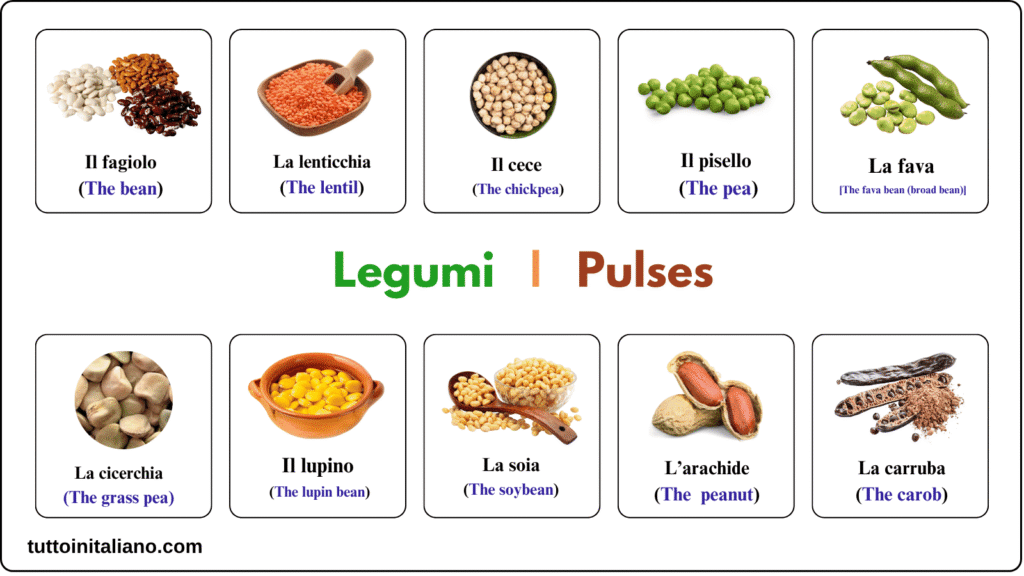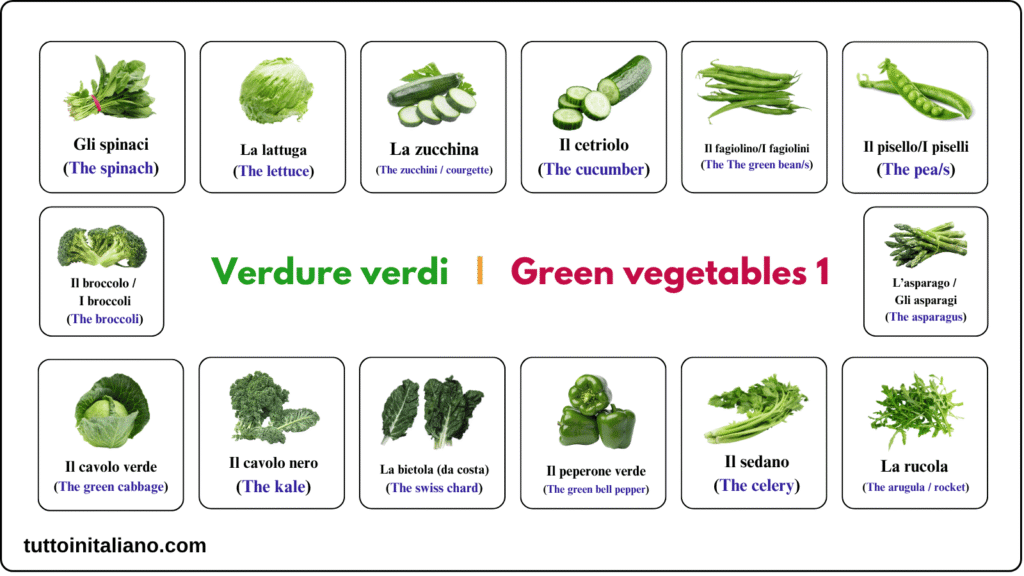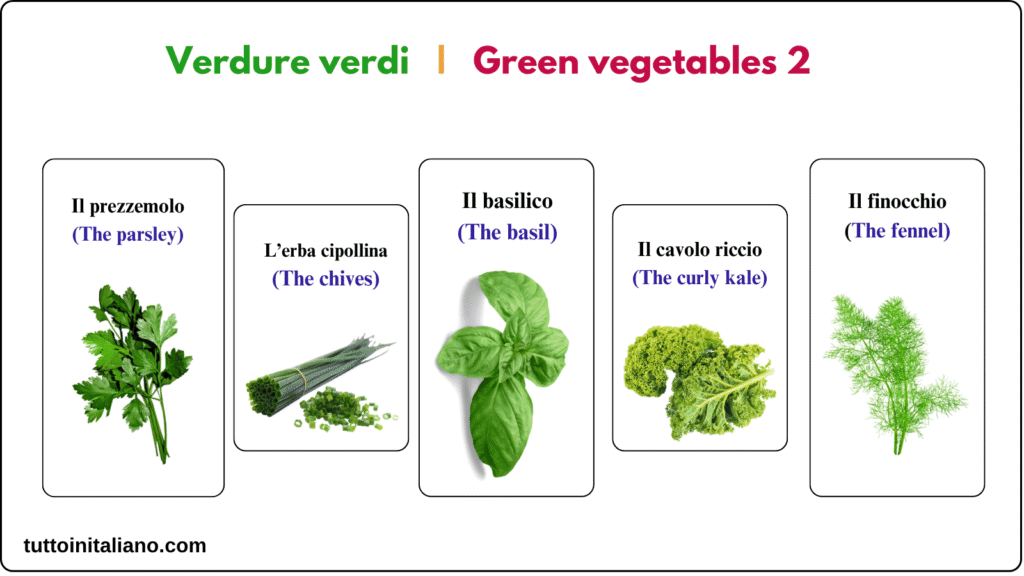Le verdure | The vegetables
- Il pomodoro (The tomato)
- La patata (The potato)
- La cipolla (The onion)
- L’aglio (The garlic)
- La carota (The carrot)
- La melanzana (The eggplant / aubergine)
- Il peperone (The bell pepper)
- Il peperoncino (The chili pepper)
- Il cavolo [The cabbage (also il cavolo verza for “savoy cabbage”)]
- Il cavolfiore (The cauliflower)
- Il fungo (The mushroom)
- La zucca (The pumpkin)
- La rapa (The turnip)
- Il ravanello (The radish)
- La barbabietola (The beetroot)
Verdure verdi | Green vegetables
- Gli spinaci (The spinach)
- La lattuga (The lettuce)
- La zucchina (The zucchini / courgette)
- Il cetriolo (The cucumber)
- I fagiolini [The green beans (singular: Il fagiolino)]
- I piselli [The peas (singular: Il pisello]
- Il broccolo / I broccoli (The broccoli)
- L’asparago / Gli asparagi (The asparagus)
- Il cavolo verde (The green cabbage)
- Il cavolo nero (The kale)
- La bietola (da costa) (The swiss chard)
- Il peperone verde (The green bell pepper)
- Il sedano (The celery)
- Il prezzemolo [(The parsley (herb but often used as a green veg)]
- Il basilico [(The basil (herb, but bright green and used in cooking)]
- La rucola (The arugula / rocket)
- L’insalata iceberg (The Iceberg lettuce)
- Il cavolo riccio (The curly kale)
- Il finocchio [The fennel (often pale green)]
- L’erba cipollina (The chives)
Legumi | Pulses

- Il fagiolo (The bean)
- La lenticchia (The lentil)
- Il cece (The chickpea)
- Il pisello (The pea)
- La fava [The fava bean (broad bean)]
- La cicerchia (The grass pea)
- Il lupino (The lupin bean)
- La soia (The soybean)
- L’arachide [The peanut (often considered a pulse in Italian)]
- La carruba [The carob (sometimes classified as a legume)]
Next lesson:
Le frutte / The fruits


